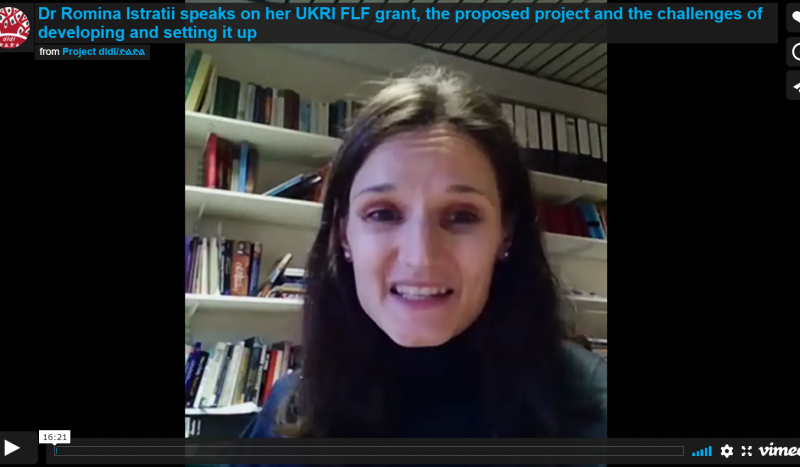This language is currently in review and will be available soon!
ፕሮጀክት ድልድል የተበረታታው በቅድሚያ በማኅበረሰብ ጤና እና ጾታና ዕድገት ዘርፍ እንደተገኘው ተሞክሮ የቤት ውስጥ ጥቃት ጥናት በምዕራባውያን የዕውቀት ማግኛ መዋቅር እና ዐሳባዊ አረዳድ ተጽእኖ ሥር መሆኑን በመረዳት ሲሆን ይሄም ድጋሚ መገምገም ያለበት ነው፡፡
በበርካታ ዓለም አቀፋዊ የመድረክ ንግግሮች የቅርብ አጋር ጥቃት በተደጋጋሚ ንድፈ ዐሳቡ ዝቅ ባለ ደረጃ ወይም ከምዕራባውያን የበለጸጉ ማኅበረሰቦች ሁኔታ አንጻር የሚቀርብ ነው፡፡ በተያያዥም ዋነኞቹ የንድፈ ዐሳብ መዋቅሮች ተቀባይነት ያላቸው በተለይም ሴቶችን ከመጨቆን እና ከማጥቃት ጋር የተያያዙ የወንድ የበላይነትን የሚያንጸባርቁ ባሕሎች ጋር በተያያዘ ባለ ጥርጣሬ ዝቅ ያለ ትኩረትን ነው ያገኙት፡፡ ጾታን መሠረት ያደረገው ጥቃት ጉዳይ በስፋት የተወረሰው በምዕራባውያን መር ማኅበረሰባዊ ንድፈ ዐሳብ በኩል ሲሆን ጾታዊ እምነቶች፣ ማኅበረሰባዊ ልዶች እና የሰው ጠባይ አንዱ ለአንዱ ምክንያት በመሆን መንገድ እንዴት እርስ በእርሳቸው እንደሚገናኙ የሚያብራሩ ጉዳይ ተኮር ማኅበረሰባዊ ባሕላዊ እና ሕዝብ ተኮር ጥናቶች ግን እምብዛም የሉም፡፡ በሥነ ሰብእ ማስረጃዎች ላይ መሠረት ያደረጉ ጥናቶችም ውስንነት ይታይባቸዋል ምክንያቱም መሠረት የሚያደርጉት በአውሮፓ እና አማሪካ የጾታ እና ጾታዊ ግንኙነት ንድፈ ዐሳቦች ላይ ስለሆነ ነው፡፡ ስለዚህም እጅግ ጥቂት ጥናቶች ብቻ ናቸው በነባር ሃይማኖታዊው ዓለም እና ሀገረኛ ማኅበራዊ-ባሕላዊ ዘዴ የማስተካከያ ዕቅዶች ላይ ምርምር ያካሄዱት፡፡
ፕሮጀክቱ ራስ ጠቀስ እና ሕዝብ ተኮር ዐሳባዊ እና ንድፈ ዐሳባዊ መዋቅሮችን ለማበረታታት የሚያልም ሲሆን በዚህም ጉዳይ ተኮር አግባብነት ያለው እና ውጤታማ የሆነ ጣልቃ ገብነትን ለማሳካት በማሰብ የቤት ውስጥ ጥቃትን ለመመርመር እና ለመረዳት ያልማል፡፡ ይሄ ክፍል በባሕሎች መካከል በተለይም በዕድገት ኢላማ የተደረገባቸው ዝቅተኛ እና መካከለኛ ገቢ ባላቸው ሀገሮች ላይ ወይም በምዕራቡ ማኅበረሰብ ውስጥ ባሉ በተለያዩ ሕዝቦች ለቤት ውስጥ ጥቃት ተመራማሪዎች የተዘጋጁ የፕሮጀክት የጽሑፍ ውጤቶችን ይዘረዝራል፡፡

Courtesy of UK Research and Innovation
The current blog post presents the first educational film created by project dldl/ድልድል and its collaborators on the topic of domestic violence and faith in Ethiopia in an effort to apply research to the resolution of societal issues. The blog essay presents the film’s storyline and discusses the process of co-production between the Principal Investigator and two companies in Ethiopia and the UK. It also reflects on some of the key ethical and contextual challenges that were faced during a pandemic and a regional war affecting East Africa and important lessons learned for effective use of the creative industries in impact-oriented research. The essay could be of use to domestic violence researchers interested in creating or using film in translating their research into educational and awareness-raising resources.

Courtesy of UK Data Service (ReShare)
The current dataset includes assessment questionnaire responses by clergy participating in a workshop series on domestic violence that was designed by Project dldl/ድልድል and co-delivered with the support of the Ethiopian Orthodox Church Development and Inter-Church Aid Commission (EOC DICAC) in Amhara region, Ethiopia. The questionnaires were collected as part of the programme’s evaluation approach, which comprised of a pre-workshop interest form that asked participants background information and a post-workshop assessment that asked them to assess different aspects of the workshops. A total of 155 assessment questionnaires were collected from clergy participants across 7 workshops. The participants were asked to respond to 7 assessment questions at the end of each workshop. Their responses were transcribed from the paper-based questionnaires in Amharic and were subsequently translated to English with the help of professional and native-speaking translators.

Courtesy of Sustainable Development Goals Online
Despite the proliferation of more critical and inclusive approaches in development research in recent decades, much research on domestic violence is characterised by a persistent lack of recognition for the epistemic power of the theorist/practitioner and fails to make sufficiently transparent how epistemological situatedness and personal positionality inform research, analysis and practice. This chapter from Dr Romina Istratii’s monograph Addressing Gender and Development to Local Religious Contexts: A Decolonial Approach to Domestic Violence in Ethiopia proposes a theology-informed, participatory ethnographic approach to domestic violence research that is more reflexive of the epistemological situatedness of theory and pays due attention to the process of linguistic and cultural translation in view of the personal identity of the researcher. It covers safety issues in domestic violence research of this kind, issues of transparency around the positionality of the researcher in the process of researching and communicating the fieldwork experience, and challenges of interpreting and translating research participants’ discourses.

Courtesy of SOAS University of London
20 February 2021
In this interview conducted by SOAS University of London subsequent to Dr Istratii being awarded a UKRI Future Leaders Fellowship, Dr Istratii, principal investigator and creator of project dldl/ድልድል, speaks about the project, the development of the project application, and the project’s approach. She discusses some of the challenges of developing an impact-oriented project working in locally-grounded ways and involving multiple international partners, while meeting UK funder tight deadlines and facing procedural delays within the university.

Courtesy of Cambridge Centre for Christianity Worldwide
27 October 2020
In the fields of gender and religious studies and gender and development, religious systems have been most often interpreted as inegalitarian and as conducive to conjugal abuse. Many studies have lacked the proper contextualisation to understand how local traditions have been known and experienced vernacularly. In this webinar, Dr Romina Istratii presents a theology-informed, ethnographic study of conjugal abuse realities and attitudes in the Ethiopian Orthodox Täwahәdo community of Aksum in Northern Ethiopia. The study stresses the urgency for an approach that understands how laity and clergy deploy religious discourse to maintain practices and social norms and that subtly leverages on apostolic Orthodox theology to facilitate normative, attitudinal and behavioural change.

Courtesy of the University of Sheffield
20 May 2020
In this interview conducted with the University of Sheffield, Dr Romina Istratii shares some of the main ethical challenges that she faced while conducting research on domestic violence in Northern Ethiopia, which was committed to epistemological reflexivity and being transparent about the positionality of the non-local researcher in the research process. Inter alia, she addresses ethical and practical issues around entering the field, community engagement, consent and data management, language learning and safety in domestic violence research.